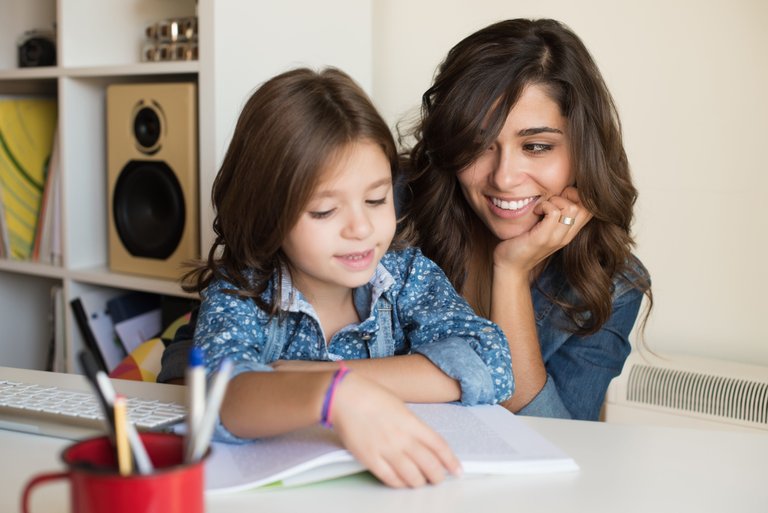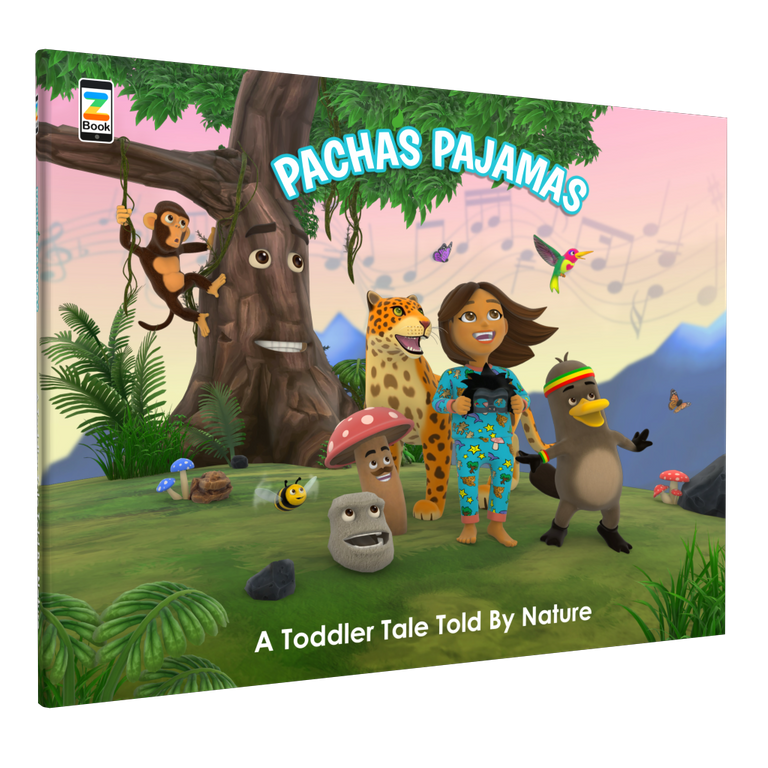While it may seem cliché, making New Year’s resolutions together as a family can be a powerful way to ensure that everyone is involved in deciding on and contributing to the family's goals. A true opportunity for bonding, whole-family resolutions can serve as the bedrock upon which the family gathers together, builds together, and grows together each day.
When we empower our children to become an integral part of the decision-making process, we teach them that their goals and opinions are important, that they have something of value to contribute, and instills leadership and creativity from a young age.
Below are seven family-oriented New Year’s resolutions that you can make with your children this holiday season:
1. Have a weekly family meeting.
As Bruce Feiler explains in his seminal Ted talk “Agile programming – for your family”, regular family meetings can increase communication, decrease stress, and make everyone happier. Family meetings are the heart of what Bruce calls the “Agile Family.”
The term “agile” refers to a project management methodology commonly used in leading software development and production environments. As one of the most common project management strategies utilized today, “going agile” means adopting an organizational mindset that allows teams to stay focused, motivated, and productive.
Bruce says it was the single most important thing they did as parents. He suggests that families convene on a weekly basis for 20 minutes or less around three questions:
- What worked well for our family this week
- What did not work well
- What will we work on in the next week.
In a weekly stand-up meeting, everyone in the family throws out feedback and suggestions, a couple of which the family will focus on for the upcoming week.
Check out Bruce’s Ted Talk for more ideas about how weekly meetings can work for your family.

2. Create a morning checklist.
Set up a whiteboard in the house that lists each child's chores. For children who can read, each child is expected to review the list in the morning and check off chores as they complete them. For younger children, this can be done with the assistance of a parent or an older sibling who is willing and able to help.
Review the list together over breakfast, and have the kids check off the list after each item is completed. Some parents may cringe at the idea of using a checklist, but they give kids the sense of immediate gratification needed to motivate them to continue moving through the morning with fewer incidents. Lists can also help to give children a more concrete understanding of your expectations and help to reduce anxiety frequently found in high-stress environments.

3. Spend time outside, and create opportunities to recognize our inter-connectedness.
We are deeply connected in many ways, to nature, one another, to ourselves. We are one human family, sharing the same Mother Earth, breathing the same air and water molecules present since the beginning of life as we know it on Earth. Quantum physics tells us that everything is energy – that the space between you and I is filled with energy, and that we are energy ourselves. We are also connected by technology in many ways. As we work to keep our minds present and aware of our inter-connectedness, we treat one another (and nature) better. Have a conversation about how we are all connected with your children. Let them tell you how they are connected with the world around them.
It can be helpful to regularly discuss this by engaging in activities that provide an organic opportunity in which to broach the subject – as a family, you can spend more time in nature, at the park, in the backyard, with plants on the balcony, and spend time with the trees and outdoors in general.
A meaningful activity for families is the Connected Dance Challenge, which invites young people to dance and sing about our connectedness for the chance to be in a video with kids from around the world. The more we keep our connectedness in mind, the better we will treat the planet and one another.
4. Lead By Example.
Our children learn from their surroundings, and many parents forget that a pint-sized audience is constantly watching our every move intently. You can help teach them the same respect you would like them to show you, by actively demonstrating those same actions towards others you interact with each day. By watching you, they can learn how to communicate with kindness, show respect and appreciation for those who are different, and the importance of reaching out to others who might need friends.
Another opportunity to instill compassion and understanding in your children is to volunteer some time out in your own community. There are always opportunities to clean up a park, serve meals to people in need at a local shelter, or to regularly donate clothes and toys to other children who may need them. Engaging in activities like this as a family sets the stage for learning how to care about someone else’s needs first – a vital lesson for all to learn when growing up.
5. Make reading your new family activity, and annotate books during conversations.
We need to keep kids interested and excited about reading. With so much attention being drawn away by digital screens, and the accompanying revolt in response to many parent’s attempts to limit that time, some may find this a daunting prospect. One way to make reading fun is to for parents and children to come together throughout the book and discuss what they are learning. When your child feels something in a book or learns something new, they may laugh, feel surprised, or feel the emotions appropriate for a given storyline.
During reading, you can reflect with your children through discussion about what they are feeling, while making a notation in the margins to illustrate a word like "Wow" or "LOL," or draw faces with the emotion they are feeling at a point in the story.
Not only will this encourage children to take notice and define their feelings, but it helps them to develop empathy and feel connected to the characters. Don’t worry about writing in your books – all of the greatest stories are written on pages that will wear out long before the memories you created when reading them together. Whenever your child opens that book again, the scribbles and faces will serve as a poignant reminder of the special time they spent reading and conversing with you when they were little.

6. Consume consciously.
Resolve to make sure that the things that enter our minds and mouths regularly are healthy and balanced. There is much debate in the world about what is good for us or not, but we can make some small changes that can bring huge rewards. Work as a family to remind each other to drink several cups of water each day, limit soda and fruit drinks, and eat more fruits and vegetables. Something as simple as adding chopped fresh spinach to a pasta dish can be a small step towards healthier living!
Similarly, we need to make sure that what we let in our mind is healthy. We don’t just consume foods and drinks, but also information. Resolve to decrease screen time, and make sure that your kid’s entertainment is teaching appropriate values. You’d be surprised how much of your child’s “regularly scheduled programming” might be teaching your children to behave in the exact ways that stress you out sometimes.

There are many healthy alternatives available; we just have to invest the time into finding them.
A good example of a book with “nutritious content” is Pacha’s Pajamas: A Story Written By Nature. Pacha is a little girl awakening to her immense gifts and bringing them to the world. Pacha's imagination is bigger than the Andes Mountains - homeland of her ancestors. When she goes to sleep, the characters on her pajamas become her guides her on dream adventures to learn more about herself and her connection to the natural world. In the first book in the series - A Story Written By Nature, her pajamas are covered with plants and animals - a whale, tree, jaguar, mushroom, pebble, and hummingbird. Pacha’s magical pajamas carry her into an epic dream where she’s the central player at a nature festival to save the planet from destruction. Pacha awakens with the inspiration to show the world that We Are ALL Connected. Augmented reality books like Pacha’s Pajamas are a good way to get kids interested in reading physical books.

7. Be Safe Online.
In this day and age, many of the most terrible threats to our children can start out online. This shouldn’t mean that we consider absolute prohibition; the internet can be a valuable learning and communication tool. Active parents monitor the child’s online activities regularly and have age appropriate conversations with their child about proper conduct on the Internet. Hold kids accountable if violations occur, and make sure that your children understand WHY something might be dangerous, rather than only THAT it is dangerous. If you are clear about why you are concerned about certain issues, your children will be more likely to respect your concerns and take you seriously, rather than being tempted to push the boundaries.

- BONUS!
Tell your story. Successful organizations stimulate progress and preserve their core values in all endeavors. You can preserve the core of your family values by telling your kids where they come from. Help them see themselves in a larger narrative that celebrates the family’s successes and shows how it has overcome challenges. This understanding will provide a solid foundation that undergirds all the other resolutions.
The New Year’s Resolutions above stimulate progress that can be made in your family starting now. Rome was not built in a day, and new habits aren’t either! But when working towards common goals, your family can confidently place one foot in front of the other each day, knowing that you’re working as a team with a greater purpose.
Happy New Years Resolutions!
About Dave Room
Dave’s most important identifier is Melia’s Papa. His teenage daughter Melia is his joy and inspiration. Since receiving a B.S. and M.S. in Engineering from Stanford University, Room has had leadership roles in startups, nonprofits, and social enterprises in a variety of emergent fields. He fashions himself a shift shaper as all of his work is to create pathways for collective shifts in consciousness. As an inventor, his current focus is augmented reality books and distributed ledger systems for social innovation, specifically the organization and curation of knowledge, collective decision making, and collective asset management. With the intention to uplift tens of millions of children worldwide, Room co-founded BALANCE Edutainment and is an author of Pacha’s Pajamas: A Story Written By Nature. Dave is an Active Dreaming teacher, a SoulCollage® Facilitator and a Green For All fellow. Check out his blog at MeliasPapa.com. Twitter: @meliaspapa